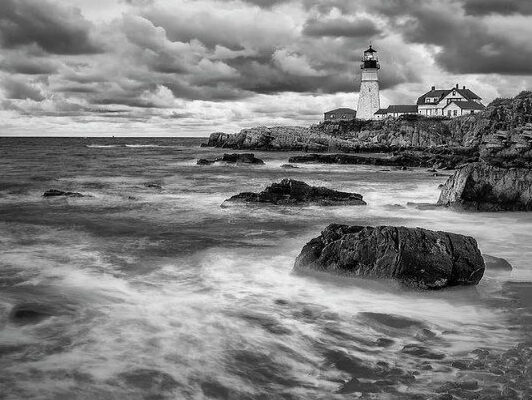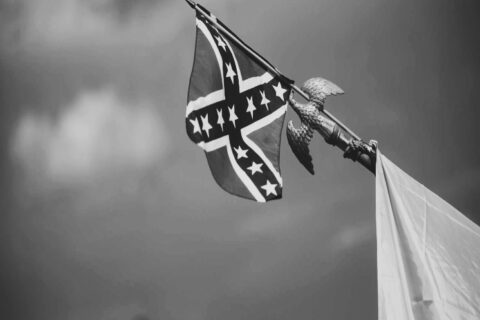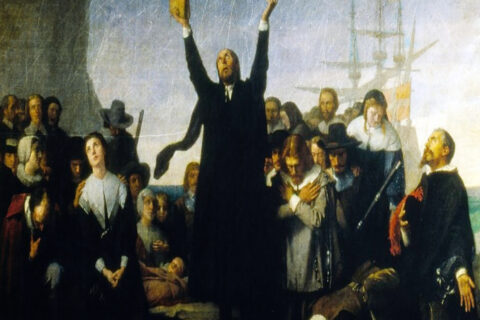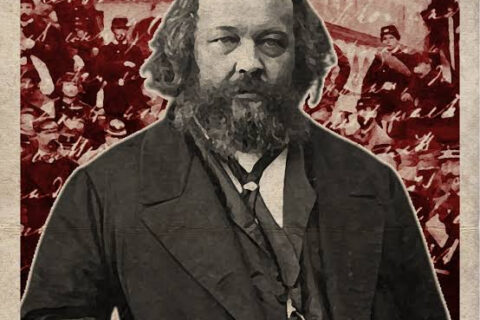Author’s Preface: This is not a lamentation for the people in question. It is simply a discussion of their decline from the American Imperial throne, having lost it to their replacements who have taken the historic New England ideals to a modern extreme. My piece on the Boers gave me the idea to write this.
Pride goeth before destruction, and an haughty spirit before a fall.
Proverbs 16:18 KJV
New England, alongside Tidewater Virginia and the Deep South, stands astutely as one of the oldest nations within North America. Like those other mentioned archaic nations, New England has fallen from power. Whereas the Tidewater and Deep South were politically and militarily subjugated and face relentless propaganda, New England fell more so from the disappearance of the native New England Anglos. A stalwart epicenter of political influence within the federal sphere, the crafty New Englanders often utilized industry, immigration, religious zealotry, and oratory skills to its benefit, even when greatly disliked across the rest of America. Yet, New England has faded, most notably its old stock founders. Fortunately during the 1800s, the arrogant greatest enemy to the Southern Tradition had decreased demographically to such a degree at such a rapid pace that even Rhode Island native Howard Phillips Lovecraft, as early as the 1910s, lamented the death and disappearance of the historic region. This essay will detail the origins, rise, and fall of the once influential New England.
Originating from the Southeastern corner of England, constituted of Separatist Puritans exiled from the Church of England. Fleeing to the Netherlands to escape religious persecution, the first Puritans in New England left the Netherlands in the 1620s and founded the Plymouth Colony. Once the Massachusetts Bay Colony had been established in 1629, Puritan Separatists flocked to the region en masse until 1643.

Religious fanatics in the purist of forms, Puritans held a radically anti-Catholic belief which sought to purify the Church of England of its Catholic characteristics, particularly Roman Catholic doctrinal roots they believed had not been sufficiently mediated during the English Reformation. Adhering to an odd sect of what they believed were Christian beliefs, their zealotry only grew while in North America. Facing no hinderance of government or state sponsored churches, their fanaticism was allowed to go unchecked, a phenomenon paralleled by the Quakers who settled in Rhode Island, Pennsylvania, and New Jersey. It is no coincidence that Yankee and Quaker regions were the epicenter of abolitionism during America’s formative years. Superstitions flourished which allowed for the events at Salem to unfold. So insufferable were New Englanders that the Dutch-founded New York and its surrounding population began calling them “Janke,” the etymological root of the modern day term “Yankee.” At no point were these people liked by any surrounding or associated peoples. Still, they managed to persuade, or drag, other nations in America to side with them against the British in 1776 and control a significant amount of political and economic control throughout much of the United States’ history.
New England sat at the epicenter of the First Industrial Revolution, with Blackstone Valley being its birthplace. Massachusetts, Maine, and Rhode Island all experienced rapid production and growth of textile and cotton mills. Additionally, firearms manufacturing took a strong root there, specifically the Springfield Armory in Connecticut. As time progressed into the 19th Century, urban areas greatly expanded, and the labor shortage consistently brought in multitudes of Irish workers to the factories. This socio-economic development gave New England the financial leverage and population numbers to continue maintaining a foothold within the federal government despite its limited regional size. From the railroad industry to the robber barons to the banks to the media to the government, Yankees dominated the American hegemony from the 1860s to well into the 20th Century.
Further developments in the wake of the First and Second Great Awakenings, as well as, westward expansion cemented the region’s influence and ethnic imprint within the upper regions of the Midwest. Yankeedom would spread as far west as Minnesota and Wisconsin. Founding a multitude of churches and schools in the area, this would allow them to influence the masses of Germans flooding the region during the 1800s.
New England’s early successes and proximity to urban areas and major ports proved its downfall in the long term, especially ethnically. By 1860, much of the region’s natives had been replaced by Irish immigrants. The mentally unhinged Quakers within and near New York compounded this demographic issue by allowing droves of German immigrants into the country who then quickly flocked to the Midwest. German immigration took place between roughly 1670 and 1870 with the majority of them arriving between 1820 and 1870. The most toxic of these were the Forty-Eighters, failed liberal, socialist revolutionaries exiled from Germany who then moved to the United States and quickly became political leaders representing the Midwestern Germans. Their anti-Southern fervor and utopian idealism would be influenced further by the writings of abolitionist Yankee propagandists such as William Lloyd Garrison. In such large numbers had Germans moved to America that they ultimately supplied the largest contingent of troops to the Union Army during the War Between the States, not the Irish as is so often claimed.
The immigration policy between 1880 and 1924 allowed for a large influx of Italians and Central European Jews. The former remained mostly within Boston, New York, and New Jersey. Jews, on the other hand, quickly adapted to New York City, taking over many newspaper, business, and banking sectors.

These unmitigated waves of Central and Southern European immigration came to an end with the Immigration Act of 1924, redirecting the policy to focus more on that of Northern Europe. However, New England’s fate was sealed when it and its ilk, both ethnic and memetic, opened Pandora’s Box and passed the Immigration Act of 1965. All but wholly cutting off European immigration, this act changed the policy by thrusting open the gates to Third World invasion immigration. These newcomers have been transported to every county, every section, every town, and every city within the country, leaving no stone unturned and lining the pockets of corporatists and Big Ag with countless greenbacks.
In the end, these events have left old-stock Yankees very little territory, relegating them to parts of Maine, New Hampshire, Vermont, and a small handful of other counties in the region. Politically and economically, the creolized, both Caucasian and Colored, masses of Irish, Italians, Germans, Third Worlders, and Jews have relinquished the Yankees of their control whilst maintaining the leftist idealism of their progenitors, forming it into a warped and degenerate memetic descendant of itself. Nevertheless, the damage has been done, and the flyover country, primarily comprised of Heritage Americans, is now being ravaged by all manner of Coastal Elites, cultural decadence, and Third World immigration. While New England’s legacy lives on, its people have largely been replaced. Writing frankly, they did it to themselves.
You have seen but little of the savage manner in which it is waged by your barbarous enemies. It has been my fortune to witness it in all its terrors; in a part of the country where old men have been torn from their homes, carried into captivity and immured in distant dungeons, and where delicate women have been insulted by a brutal soldiery and forced even to cook for the dirty Yankee invaders; where property has been wantonly destroyed, the country ravaged, and every outrage committed. And it is with these people that our fathers formed a union and a solemn compact. There is indeed a difference between the two peoples. Let no man hug the delusion that there can be renewed association between them. Our enemies are a traditionless and a homeless race; from the time of Cromwell to the present moment they have been disturbers of the peace of the world. Gathered together by Cromwell from the bogs and fens of the North of Ireland and of England, they commenced by disturbing the peace of their own country; they disturbed Holland, to which they fled, and they disturbed England on their return. They persecuted Catholics in England, and they hung Quakers and witches in America. Having been hurried into a war with a people so devoid of every mark of civilization you have no doubt wondered that I have not carried out the policy, which I had intended should be our policy, of fighting our battles on the fields of the enemy instead of suffering him to fight them on ours. This was not the result of my will, but of the power of the enemy. They had at their command all the accumulated wealth of seventy years- -the military stores which had been laid up during that time. They had grown rich from the taxes wrung from you for the establishing and supporting their manufacturing institutions. We have entered upon a conflict with a nation contiguous to us in territory, and vastly superior to us in numbers.
Excerpt of President Jefferson Davis’ Speech at Jackson, MS, 1862
“The White people of the South are the greatest minority in this nation. They deserve consideration and understanding instead of the persecution of twisted propaganda.” –Strom Thurmond






A lot of those 48ers went to Texas too. Copy/paste from Wikipedia:
“Galveston, Texas, was a port of entry to many Forty-Eighters. Some settled there and in Houston, but many settled in the Texas Hill Country in the vicinity of Fredericksburg. Due to their liberal ideals, they strongly opposed Texas’s secession in 1861. In the Bellville area of Austin County, another destination for Forty-Eighters, the German precincts voted decisively against the secession ordinance.[3]”
Yeah, I’m aware. I was just focusing on the North. Lotta Germans also settled in Appalachia.
Excellent. My only remaining hope for the new peopling of the continent is that the Europeans were capable of being productive and highly functioning while new arrivals depend on a welfare state to survive the week. When it all breaks, we need to have a humanitarian way to relocate them en masse.
Interesting note. One of the main reasons they immigrated to the New World, their children were being inculturated into Dutch society. They were marrying into Dutch families and losing their English identity.